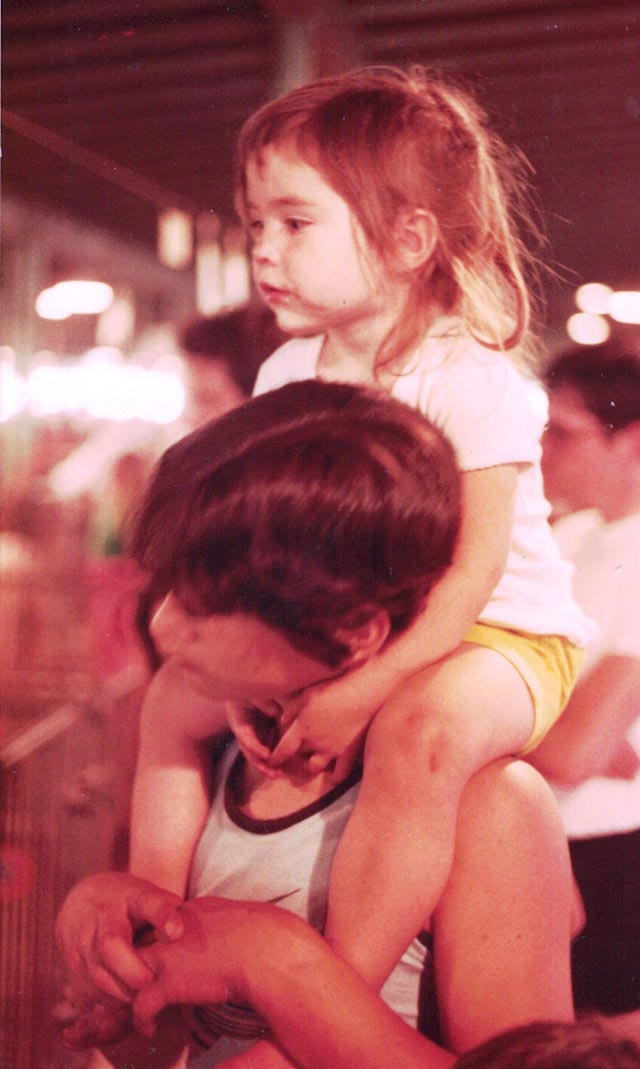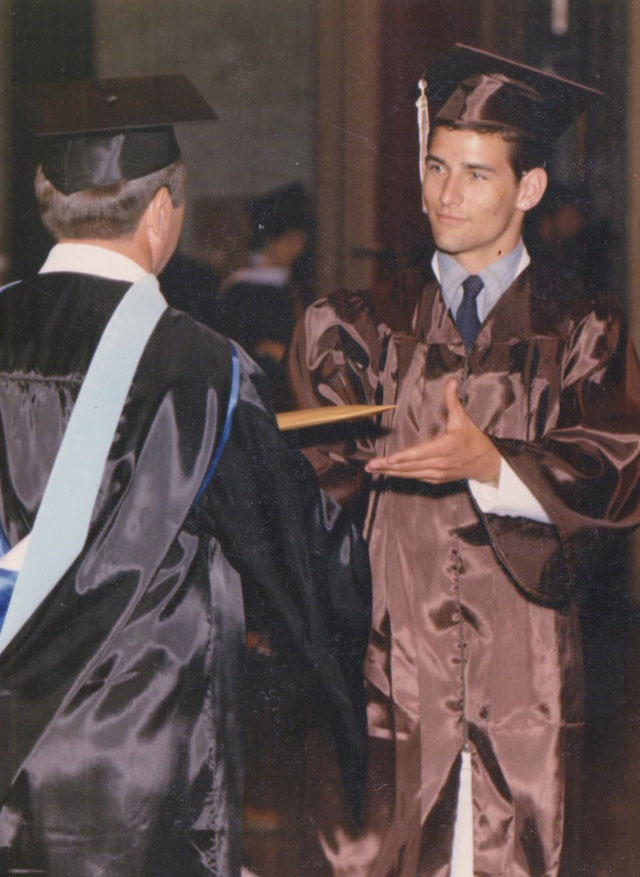2021-September-09
Did you know? You can share this story using the social media icons on the upper left. Use the hashtag #WeAreCisco. You can also rate or comment on the story below.
Unforgettable, Unconditional Love
BY MEGHAN RICHARDSON · SUCCESS PROGRAM MANAGER · UNITED STATES
WITH HELEN GALL
Editor’s Note: The following story involves a discussion about mental health, including suicide, which might be upsetting to some readers.

I will never forget the night of April 15, 1994. It was the last day of school before spring break, and I had just gotten home from a night out at a football game with some friends.
It seemed that I had just closed my eyes when I felt my sister shaking me awake. I don’t think my eyes were even fully open when she told me the heartbreaking news. My big brother Brian had died by suicide.
Brian. The brother who showed me what unconditional love was. The one who saved the day when I dropped my birthday treats in third grade and showed up with amazingly fresh cupcakes for me to hand out. Who not only showed me how to ride a bike but bought me a bike without training wheels. The guy that would fly me over his head and call me supergirl — I really felt like supergirl when I was around him.
He was not just my big brother. He was the oldest in our family of six kids. He had three beautiful children and a lovely wife of his own. He coached soccer. He made mixtapes and played the B-52s’ “Rock Lobster” so loud as he sang along out of tune.
During his senior year of high school, he had a tagline under his yearbook photo that was a quote from “Forever Young” by Alphaville, which read, “Let us die young or let us live forever.”
There is something physical that happens when your heartbreaks. I can only describe it as this wave of heat starting from my face down to my toes, followed by chills all over. I sat in a chair in the living room and just stared off until I had tunnel vision. I could hear bits and pieces of conversation around me, but nothing seemed real.
Just 10 days earlier, Kurt Cobain, the lead singer of Nirvana, had died by suicide. I knew that my brother suffered from depression and had been having a really tough time in general.
I couldn’t help but wonder if this could have impacted him. It seemed that everywhere I turned it was being discussed in detail on the news: the pictures, the note, the location, and the method. With all that coverage, did it have an impact on his own depression?
Over the years, I found it difficult to discuss my loss with people. Suicide and mental illness have always been such taboo topics. It took 13 years for me to work up the courage to participate in a suicide awareness charity walk. The thing was, I had to raise money to participate, which meant telling people. After much consideration of how it might impact people’s perception of my family and me, I started asking for pledges.
As I garnered support from my team, I felt even more courage in the process. My colleagues at Cisco are more like family to me than they could ever know.

Fast forward to 2020
On January 23, I received an email regarding a volunteer opportunity on a project called Artificial Intelligence for Good: Suicide Prevention being run by Cisco’s Jennifer Redmon.
This project was started in partnership with S.A.V.E. in response to research published in 2019 by Dr. Thomas Niederkrotenthaler, stating, “In cases where reports of celebrity suicides didn’t adhere to the WHO guidelines, the contagion effect increased the national suicide rate by up to 13 percent.”
Some of these guidelines include:
- Not sharing explicit descriptions of the method used in a completed or attempted suicide.
- Avoiding language which sensationalizes or normalizes suicide or presents it as a solution to problems.
- Include links to information and help for those who need to seek help.
I immediately saw the connection. These were some of the many reasons the reporting on Kurt Cobain’s death was so incredibly harmful.
I can’t solely blame the unsafe reporting. There were many factors in Brian’s decision, but it certainly could not have helped. At that time in the media, there was a lack of empathy and aid offered.
I reached out to Jennifer, and she warmly introduced me to a group of people in a Webex space dedicated to this project. The team all came together using their Time2Give for this important issue.
Our Cisco team worked through many articles about suicide, scanning for harmful language and categorizing them to report back to the User Interface.
The project was not always easy. Just reading stories about loss would bring me down. I took a few weeks away from the project to get my head and heart together. After the time away, I jumped back in and finished off strong, reviewing over 100 articles.
I am so grateful to Cisco for seeing a need and giving its employees the tools to give back. I truly admire how Cisco is changing the conversation around mental health. Through volunteer opportunities such as this, Cisco has provided the bridge to change and recovery for my heart.
This month is Suicide Prevention and Awareness Month, so take a moment to ask someone how they are doing — a complete stranger, close family member, or friend. You might just save a life.
Helpful Links
- NAMI (National Alliance on Mental Illness)
- Speaking of Suicide Resources
- National Suicide Prevention Lifeline
Connect everything. Innovate everywhere. Benefit everyone.
Share your thoughts!
Log in to rate and commentShare your thoughts on the story here!